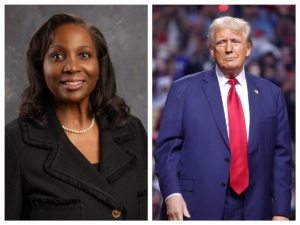U.K. Prime Minister Keir Starmer has criticized Elon Musk after the billionaire told far-right protesters in London that “violence is coming to you” and urged them to “fight back or die.”
Despite the outrage, the U.K. government rejected calls to sanction the X and Tesla owner.
The remarks came during Saturday’s “Unite the Kingdom” rally, a demonstration organized by Tommy Robinson that drew over 100,000 people to central London. While most attended peacefully, police reported that clashes on the fringes left 26 officers injured, four seriously, and led to 25 arrests. Authorities said more arrests are expected.
Musk appeared via video link, using his address to demand the dissolution of Parliament and an early election to oust Starmer’s Labour government, according to AP’s report. The prime minister responded on X, writing that while peaceful protest is a core value, Britain “will not stand for assaults on police officers doing their job or for people feeling intimidated on our streets because of their background or the color of their skin.”
READ ALSO: Starmer fires U.K. ambassador to the U.S. Peter Mandelson over Epstein emails
Downing Street spokesman Dave Pares told reporters that Starmer believes “the British public will have any truck with that kind of language,” adding, “The U.K. is a fair, tolerant and decent country, so the last thing that British people want is dangerous and inflammatory language which threatens violence and intimidation on our streets.”
Liberal Democrat leader Ed Davey pressed Starmer and opposition leaders Kemi Badenoch and Nigel Farage to denounce Musk’s remarks, accusing him of trying “to sow discord and incite violence on our streets” and to meddle in British democracy. Davey also called on the government to block Tesla from securing contracts. Starmer’s office, however, said sanctions against Musk are not being considered.
The controversy adds to concerns over rising tensions around immigration. More than 30,000 people have crossed the English Channel in small boats this year, fueling debates over asylum policies and sparking protests across Britain. Some demonstrations escalated into violence, while the government’s use of hotels to house asylum-seekers has remained a flashpoint.
At the rally, Union Jack and St. George flags were prominently displayed. Once symbols of national pride, they have increasingly been adopted by anti-immigration groups. Red crosses painted on buildings in some communities have raised fears of intimidation aimed at minorities.
“Flags can unite and divide as they are flown by people with different motives and meanings,” said Sunder Katwala of British Future. James Freeman of the University of Bristol added that linking the St. George flag to the hard right is a “relatively recent” phenomenon, though historically flags have been used “to intimidate or demark certain areas as being out of bounds.”
Starmer, while supportive of national symbols, insisted the flag should not be hijacked by extremists. “Britain is a nation proudly built on tolerance, diversity and respect. Our flag represents our diverse country and we will never surrender it to those that use it as a symbol of violence, fear and division,” he wrote.
READ ALSO: Elon Musk could secure $1 trillion pay package under Tesla’s new proposal
Musk, an outspoken critic of European efforts to regulate harmful online content, has in recent years aligned himself with far-right voices across Europe, including Robinson and the German AfD party. His latest intervention marks another flashpoint in the ongoing clash between free speech advocacy and concerns over extremism.










